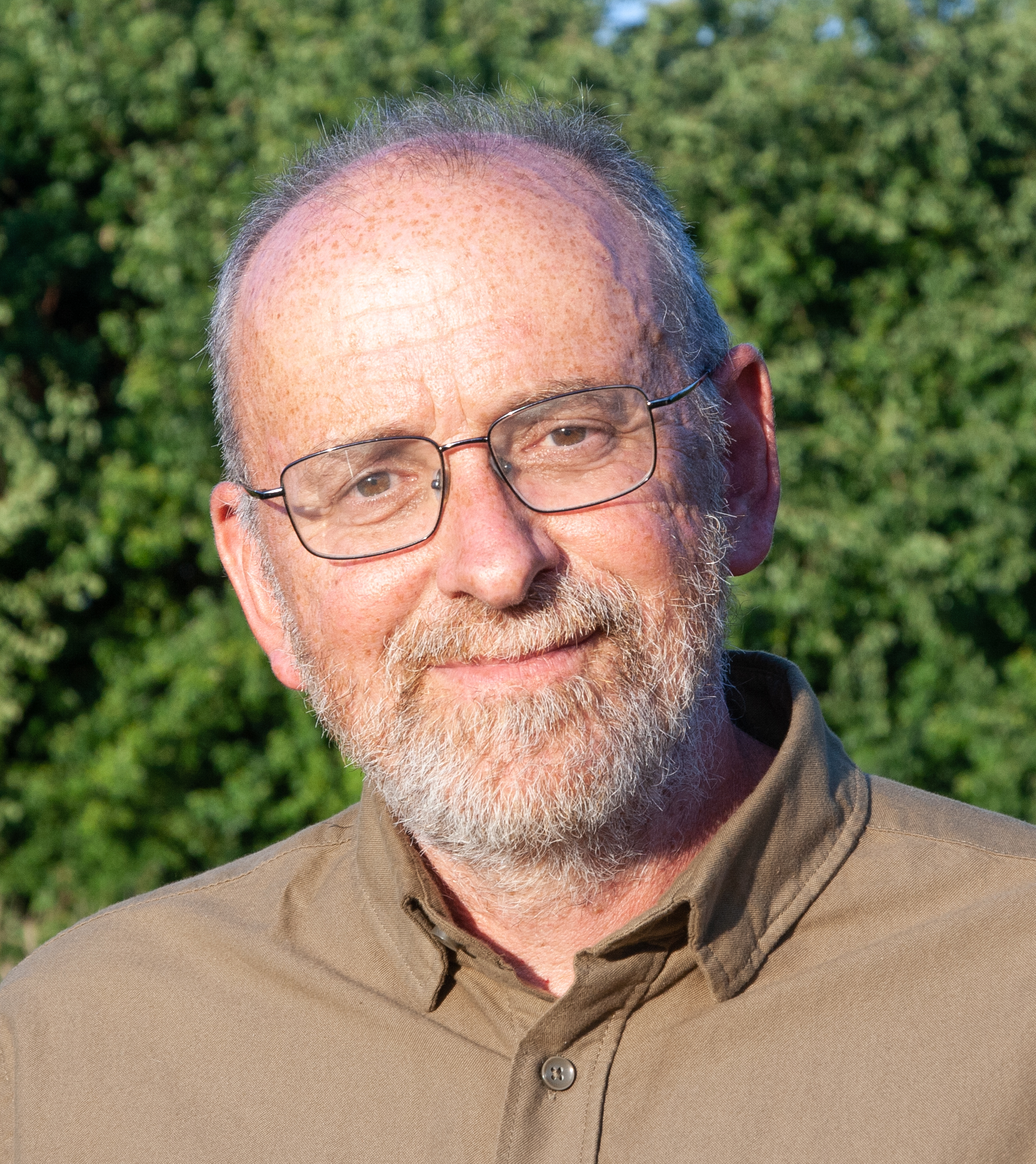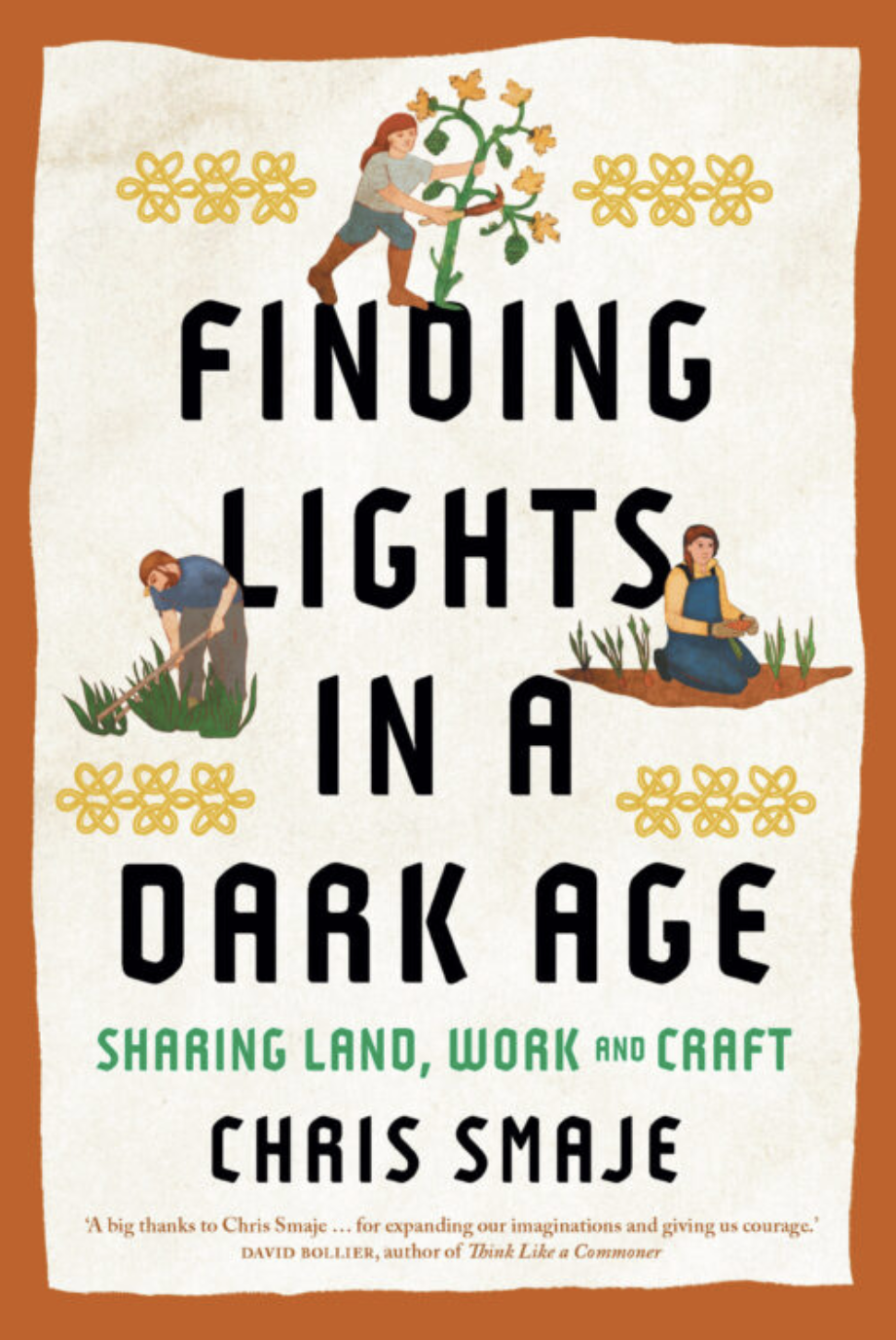What might the world look like if climate change is not stopped? What if societies refuse to, or cannot rein in capitalism and its relentless growth and exploitation of nature? Chris Smaje, a writer and farmer in southwest England, offers some intelligent speculation in his recently published book, Finding Lights in a Dark Age: Sharing Land, Work and Craft.
Smaje is not a doomer or survivalist, nor given to lurid prophesy. His book is a serious analysis of current macro-political and social trends and how they might play out in everyday life. He extrapolates from existing trends -- the rising costs of fossil fuels, food, and transport, the proliferation of droughts, floods, and wildfires, etc. – to sketch a vision of a post-capitalist, climate-disrupted world that is already arriving.

“What the mainstream refuses to acknowledge,” Smaje writes, “is that the dance between energy supply and overshoot (or climate change) poses an unprecedented challenge to the very existence of contemporary urban society, particularly large and mega-cities.”
He sees the “pipelines” of commerce from the peripheries (rural and Global South regions) to the centers of capitalism (the West and its cities) breaking down or at least becoming much more expensive. All this will disrupt the global economy and centralized national governance.
Since ecological collapse is often seen as more imaginable than the end of capitalism, I was curious about Smaje’s scenarios for the future. So I interviewed him on my podcast, Frontiers of Commoning (Episode #67), and heard a fascinating account of how current trends may play out.
Smaje, a former sociologist at Goldsmiths, University of London, gave up life as an academic years ago to become a farmer and champion of agroecology in Somerset, England. A few years ago, he published A Small Farm Future, a book that explains the role of small farming in building stable, healthy local economies. He touts the virtues of distributed, local ownership of land, eco-minded community stewardship, and commons governance.
One of Smaje's more daring conjectures is imagining a world beyond “liberal-modernism,” as he calls it, and global capitalism. “We need to be aware of the gravity of the situation,” he warned. “It isn't just a case of, ‘Oh well, things will get a bit tough’, or ‘Let's hope for a bit of new technology that will fix it all.’ We are in a really fundamental, problematic crisis.”
The unwinding of global commerce and carbon energy supplies will send shock waves through most sectors of life, says Smaje. In his book, he focuses mostly on the likely changes in agriculture, land ownership and use, livelihoods, household and family life, and politics, as seen through the eyes of ordinary people.
He uses the term “dark age” with a measure of irony, because, despite new hardships, he argues that there will be some liberation, too: freedom from regimented wage-labor, institutional exploitation, and social isolation. “Dark ages [in the past] were not necessarily what comes down to us in history, in which elite voices saying, ‘Oh my God, everything's falling apart around our ears, isn't it terrible?’ For ordinary people, dark ages were often beneficial. The archaeological evidence here in Britain is that when the Romans left, the nutrition of ordinary people improved.”

In a world of radical localism, small-scale farming, and bioregional commerce, Smaje argues that “People will begin to ask: ‘Who are my people? Who is my community? What do I worship? Where is home?’ Community will come into focus.”
So the storylines that people tell themselves will change. This is inevitable, he argues, because the “liberal-modernist story,” a narrative of relentless economic and societal progress, is no longer sustainable. The very idea of such progress is a departure from most cultural narratives in the long sweep of human history.
“The notion that we're going to be better off than preceding generations, that we will have more and more control and power over the world – to some extent, this has been true in recent generations,” said Smaje, “But it’s palpably not true now. Many of the ways in which we’ve gained power and control [over the Earth] are now coming back to bite us. Climate change and energy futures are obvious examples.”
Smaje sees his book as a critique, in part, of the Promethean, heroic story that liberal-modernists tell themselves. The story that humankind can and will overcome natural limits needs to be reconsidered. He argues that we must also reconsider the eco-modernist story that we can avert planetary collapse through new tweaks to capitalism and technological breakthroughs. Instead, we need stories of working partnerships with Gaia as a living force in its own right.
Making this shift will be more difficult than in previous civilizational collapses, says Smaje, because the capitalist/state system radiates into most corners of everyday life. Previous generations, by contrast, lived closer to the land and had greater access to the means of production. They could more readily improvise ways to feed themselves and reinvent their livelihoods, if necessary.
What strategies does Smaje see as worth pursuing?
Unlearning many lessons of liberal-modernism is a good place to start. He argues that we need to overcome the fantasy that “the hard work of provisioning ourselves can be costlessly offloaded onto other people, other places, new technologies, and exotic forms of energy. We can't keep buying ourselves out of local ecological relationships with nature and with and with each other in this way.”
We also need to escape modern fantasies of scale, and refocus on the local. Quoting human ecologist Philip Loring, Smaje notes, “Only in the industrial, colonial way of thinking do solutions for producing food or managing environments need to be uniform, scalable and deployable to all corners of the map.”
To build a functional future, Smaje calls for strategies that “re-moralize the markets” to incorporate social purpose and care, and new systems to “re-localize the economy” in ecologically responsible ways. Instead of propping up colossal concentrations of capital that roam the world extracting value, he advises, “We should re-capitalize the poor, the small farm, and the small businessman. And in place of the sterile politics of technique and expertise, we should re-invigorate and re-localize the political order.”
This guidance, inspired by educator John Bataille, cited by Smaje, resonates broadly with the work of other astute thinkers about a post-market order. I think of the late David Fleming, the British author of Lean Logic, and Ivan Illich, the Jesuit social critic of modern institutions as disempowering). (Click here and here for my podcast interviews about Fleming and Illich, respectively.)
Smaje's book touches on many further challenges in building distributed, place-based economies –- money and finance, property law, politics, commoning, and more. He believes the future economy will need to support occupations involved in the low-carbon making of things, rather than in the “abstracted sectors” of finance and advertising, for example. Local and regional currencies will be a “necessary power” for communities to meet their needs. Trade will need to be based on sustainable practices and provide useful things; it will become risky if people become overly dependent on outsiders for the basic necessities of life.
Smaje openly admits that there are too many contingent variables to predict the future; many scenarios are plausible. That said, Finding Lights in a Dark Age offers some thoughtful, erudite speculation about what a healthy, post-capitalist world might look like and the choices we may need to make.
You can listen to my interview with Chris Smaje here.










Recent comments